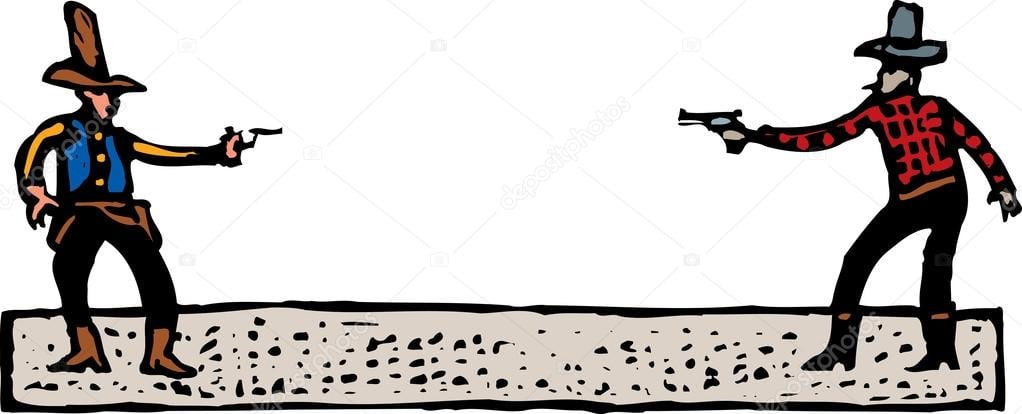Several methods are available to you if you want to survive a duel. One: do not engage in a duel because you are not an aristocrat in 18th century France. Two: have your second shoot on your behalf. Three: let the other person point their gun at you and shoot first. But do you know what the gunslinger effect is?
Niels Bohr, a quantum physicist, deduced that the person who draws first in a gunfight loses.
Shooting for Second
While watching Western movies, physicist Niels Henrik David Bohr noticed that the hero always drew his gun second but always slew the villain, who drew first. Rather than being a dramatic gimmick to make the good guy look even more righteous, he suggested that it could be because our initiated movements are slower than our reactions. He believed that the person who reacted to their opponent raising their gun had the advantage of being able to shoot before their opponent.
Taking a break from particle physics, Bohr went out with his friends the next day to put the theory to the test. As terrifying as hearing the sentence must be,
Hey Gary, I’ve got a theory about who dies first in duels and I want you to come outside
Niels David Bohr, on Testing the Theory Using Toy Cap Guns
The word anecdote should be a big red flag here, as should the fact that Bohr always acted as the reactor. It doesn’t take a professor of any major sciences to realize that Bohr himself could be the variable – perhaps he was just good at killing and ended up in physics. Bohr was not carrying out a serious experiment, and there is no data or paper from the experiment. (Source: National Library of Medicine)
Testing the Second Shot Theory
Other scientists have investigated the phenomenon to see if there is anything to it.
We wanted to know if there was evidence for these reactive movements being swifter than the equivalent proactive ones, So we set up a competition between two people who were challenged to press a row of buttons faster than their opponent. There was no ‘go’ signal so all they had to go by was either their own intention to move or a reaction to their opponent — just like in the gunslingers legend.
Doctor Andrew Welchman, BBSRC David Phillips Fellow at the University of Birmingham
The team discovered that participants who reacted to their opponent’s movement rather than initiating their own gained a 21-millisecond advantage in movement speed during the task. While they believed this gave the reactor an advantage, the team discovered that accuracy in pressing the correct buttons had decreased. What was their conclusion? These reactions are helpful but unlikely to keep you from being shot.
As a general strategy for survival, having this system in our brains that gives us quick-and-dirty responses to the environment seems pretty useful, 21 milliseconds may seem like a tiny difference, and it probably wouldn’t save you in a Wild West dual because your brain takes around 200 milliseconds to respond to what your opponent is doing, but it could mean the difference between life and death when you are trying to avoid an oncoming bus. He was probably just a very good shot.
Doctor Andrew Welchman, BBSRC David Phillips Fellow at the University of Birmingham
(Source: National Library of Medicine)
Image from DepositPhotos
